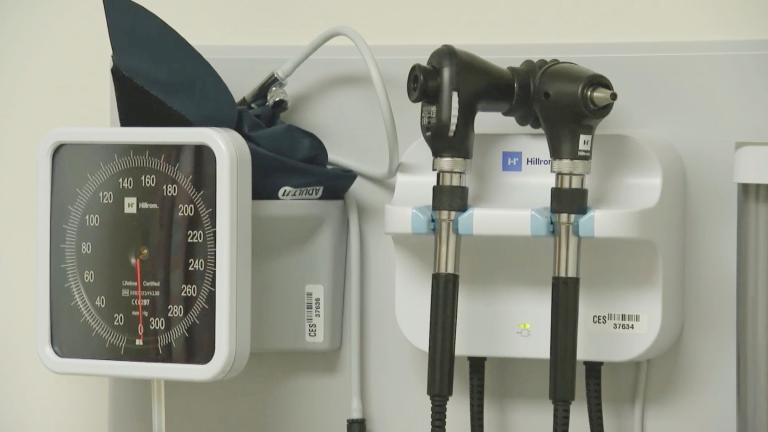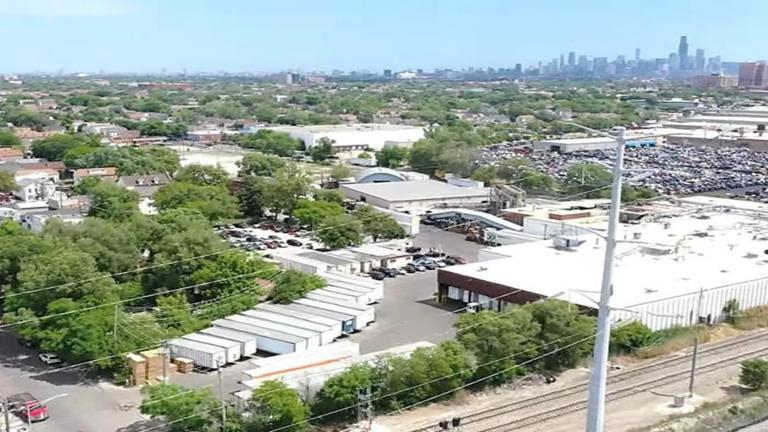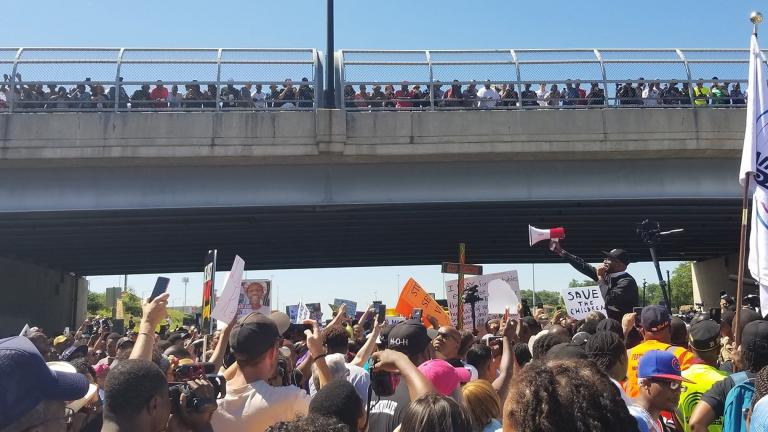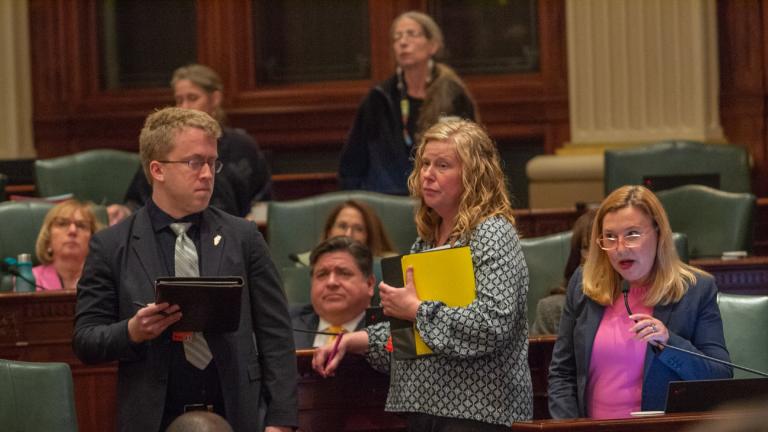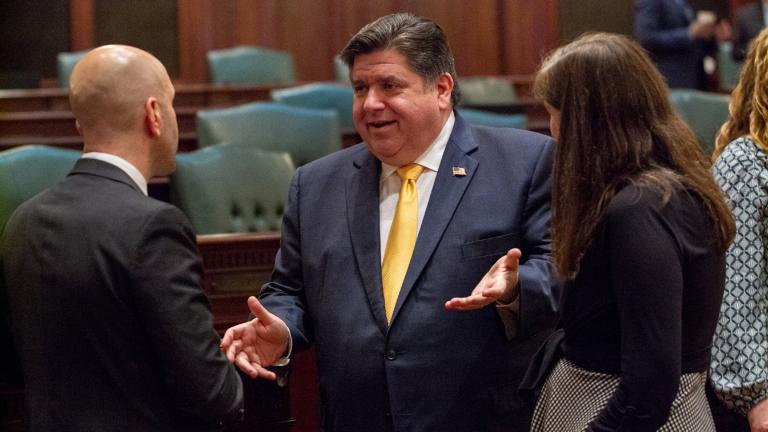Illinois gas station owners voted Tuesday to sue to prevent a portion of Illinois’ new budget from taking effect.
The $46 billion budget Gov. J.B. Pritzker signed into law Tuesday includes $1.8 billion in largely temporary tax relief, including $50 rebate checks to adult taxpayers, a one-time increase for property owners worth up to $500, and lifting for a year a 1% sales tax on groceries, meaning that shoppers will save $1 on $100 worth of food.
Instead of the per gallon tax on gas increasing by more than 2 cents in July, the spending plan calls for freezing it for six months.
In a literal sign that legislators want voters to know about it, the law stipulates that gas stations put 4 by 8 inch signs at pumps reading: “As of July 1, 2022, the State of Illinois has suspended the inflation adjustment to the motor fuel tax through December 31, 2022. The price on this pump should reflect the suspension of the tax increase.”
Gas stations that fail to post the notice could be liable for up to $500 in fines a day.
In the final days of budget negotiations, the Illinois Fuel and Retail Association urged legislators remove that provision citing First Amendment concerns.
IFRA director Josh Sharp said the board Tuesday voted to make good on that warning, and will take legal action.
“Compelling speech – it’s not how any state in this country should be conducting business, making criminals out of business owners for not posting speech they disagree with or they don’t want to take part in,” Sharp said. “It’s a pain. We don’t know how the law will be enforced. Let’s say someone comes along and defaces the sign or takes the sign off, are we then responsible? Everything about the mandate is wrong.”
Sharp said the requirement stems from political motivations.
“It’s an election year and legislators in Springfield and those especially running statewide want to make sure that they get credit for delaying a tax even though it means there’s going to be two tax increases in 2023,” he said.
One tax relief measure, and arguably the most significant for low-income families, is permanent. Illinois will increase the Earned Income Tax Credit from 18 to 20%, and for the first time allow childless individuals aged 18-24, those over age 65, and those who file taxes using an Individual Taxpayer Number (ITN) to claim the EITC.
The budget also increases funding for schools, violence prevention programs, puts an extra half billion dollars into the state’s indebted pension system, and should still leave the state with a surplus.
“That moral document says that Illinois is investing in a brighter future,” said Sen. Elgie Sims, D-Chicago.
It also provides enough money to the Monetary Award Program (MAP) such that Illinois will not have to turn away any qualifying low-income college students – a reversal of a trend in which those who apply late don’t get tuition help because the funding had run dry.
“On college decisions day I was still undecided. We were attending classes virtually and my options were very limited due to the inability to visit college campuses. Selecting the right college was a family decision and all because of my current family financial complications, it made it even more difficult,” said Maria Sierra, a sophomore at Chicago State University who is studying to be a nurse and is a MAP grant recipient.
Democrats point to this and other investments as rewards for fiscal prudence, and signs that Illinois is making a “comeback” after a partisan standoff left Illinois without a budget for two years, from July 2015 to August 2017, and loads of debt to show for it.
“When you listen to all of the Nancy Naysayers of the world ‘the state of Illinois is broke, the state of Illinois can’t manage their finances, the state of Illinois doesn’t know how to balance their checkbook.’ Well this budget and this relief plan helps all of those people,” Sen. Mike Hastings, D-Frankfort said.
Republicans say Illinois will pay for it once the state comes off a revenue sugar high fueled by federal relief money, pandemic-spending patterns and inflation.
GOP legislators voted for the tax relief and revenue measure (SB157), but not the other components of the budget (the appropriations bill HB 900 and Budget Implementation Bill HB4700).
“This continues to rely upon federal money to have the largest budget in Illinois history. That’s what we have here. And we are very concerned that down the road, next fiscal year and the fiscal years after this, that we’re creating all sorts of programs under this budget that now potentially we’re going to have to fund in the future when we won’t have this federal money coming into the state,” state Rep. Tim Butler, R-Springfield, said.
Some Democrats privately said it would have been prudent for Illinois to put more money into paying off its long-term pension debt, which stands at $130 billion.
The budget takes effect in July, when the 2023 fiscal year begins.
Even before he signed it into law at a ceremony at CSU, Pritzker was airing a campaign ad boasting about the budget’s tax relief.
Follow Amanda Vinicky on Twitter: @AmandaVinicky

